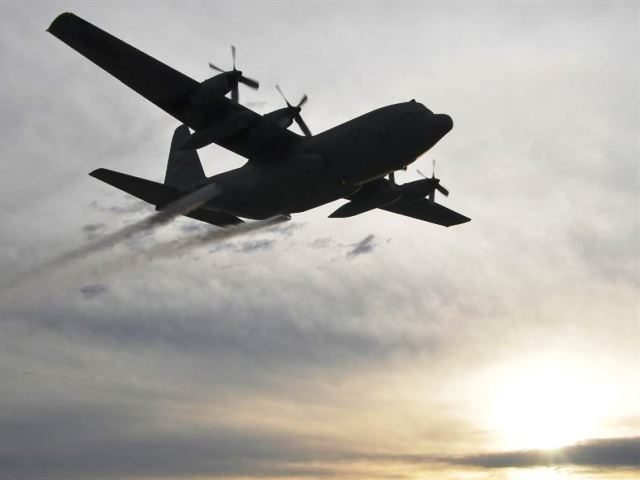The Texas Department of State Health Services (DSHS) reported they sprayed mosquitoes in more than 1.4 million acres ravaged by Hurricane Harvey. Officials plan to thwart the winged insects from breeding across multiple waterlogged counties, preventing a surge in their population and the diseases they carry, notably West Nile and Zika viruses.
DSHS officials indicated they began these mosquito control efforts throughout the flooded regions along the upper Texas coast and Coastal Bend areas, in a press release issued Monday. Sunday night the State treated Jefferson, Orange, and Chambers counties where they planned to spray again Monday evening. They also covered Jackson and DeWitt counties. DSHS said flights over Brazoria County could begin as early as Tuesday.
Last week, DSHS announced spraying in Aransas, Bee, Nueces, Refugio, and San Patricio counties. It remains unclear when Harris County will be treated, according to the Houston Chronicle.
Texas Governor Greg Abbott declared 58 counties disaster areas. President Donald Trump quickly responded by approving the State’s request for federal emergency assistance, Breitbart Texas reported.
Health officials said they coordinated aerial spraying efforts with the Federal Emergency Management Agency (FEMA). U.S. Air Force Reserve’s C-130H cargo aircraft equipped with nozzles that create “ultra low volume droplets” disperse small amounts of insecticides, one to two teaspoons per acre, to kill mosquitoes on contact.
On Saturday, the Beaumont Enterprise alerted residents the airplanes would fly at low altitudes when spraying. Breitbart Texas reported that Beaumont was hit hard by the mega-storm’s flooding. It later caused the municipal water system to fail for several days.
Public health officials said aerial spraying does not pose a health risk to humans, pets, or the environment as the droplets target mosquitoes and excess insecticide quickly breaks down once it hits the ground, surfaces, water, and sunlight. They spray at sundown to minimize any effects on beneficial insects like bees, which have already returned to their hives for the night. People may prefer to stay indoors and close windows during spraying but the U.S. Environmental Protection Agency (EPA) said this was not necessary.
DSHS spokesman Chris Van Deusen noted most mosquitoes that appear following floods are “nuisance” insects. They do not spread disease but their sheer volume can impede upon disaster recovery operations by first responders.
Still, Harvey-flooded areas laden with standing water act like incubators for Aedes aegypti mosquitoes, which are indigenous to the state. Breitbart Texas reported that through its bite, this insect transmits West Nile Virus (WNV), Zika, Dengue fever, and Chikungunya.
Van Deusen told Breitbart Texas that WNV is of particular concern because of its prevalence in the Lone Star State. As of September 5, Texas confirmed 57 cases for 2017, including three deaths. Last year, DSHS reported 370 cases and 18 deaths.
Health officials caution that most people who get infected do not get sick, although roughly 20 percent will experience symptoms of West Nile fever such as headache, fever, muscle and joint aches, nausea, and fatigue. DSHS says in one percent or less of infected individuals the virus can affect the nervous system, causing West Nile neuroinvasive disease and may include neurological symptoms like disorientation, tremors, convulsions, paralysis, coma, and even death.
In regards to Zika, pregnant women remain the most vulnerable population because of the related health risks to their unborn babies, mainly, microcephaly, the birth defect characterized by a baby born with a very small head and severe brain damage, as Breitbart Texas reported. Through September 1, the state accounted for 26 Zika cases, although it is unknown how many of these infections were pregnant women.
One county earmarked for aerial spraying, Cameron, contains the city of Brownsville. This border community is the site of the state’s first locally transmitted Zika case, reported in December. Breitbart Texas reported this quickly became five cases and by mid-month, the U.S. Centers for Disease Control and Prevention (CDC) issued a travel warning to the county.
Even with aerial spraying, Van Deusen urged residents in Harvey-affected areas to wear repellent to guard against mosquito bites.
Follow Merrill Hope, a member of the original Breitbart Texas team, on Twitter.

COMMENTS
Please let us know if you're having issues with commenting.